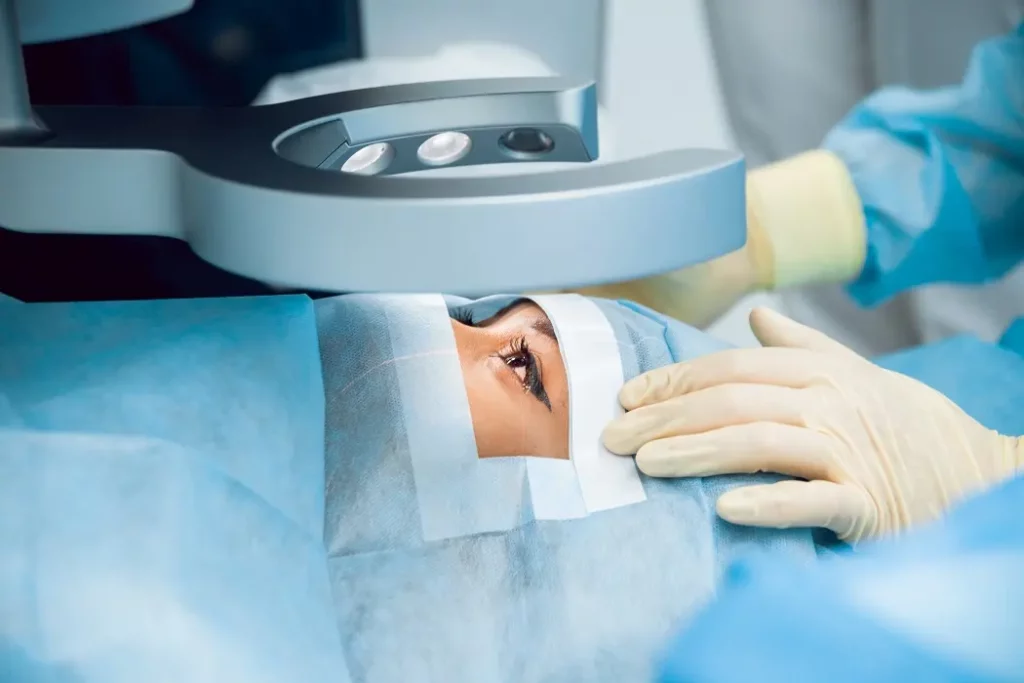All Categories
Featured
Table of Contents

Normal eye assessments are important for preserving great vision and spotting possible eye health problems early. The frequency of these tests can differ considerably based on a person's age, way of life, and overall health. Recognizing the advised schedule for eye examinations can assist ensure that people of any ages get suitable treatment and surveillance for their eye health.
Newborns and Toddlers (0-2 Years)
For infants and kids, eye examinations are crucial for detecting any kind of prospective vision troubles early on. The American Academy of Ophthalmology suggests that a youngster's very first eye exam need to happen at around 6 months of age. During this first see, the eye treatment professional will certainly examine the kid's aesthetic advancement and look for any type of noticeable eye problems.Following this very first test, it is suggested that kids have one more eye test at age three. This check out will focus on analyzing the child's general visual feature, including eye positioning and the capability to track things. If no problems are detected, the following test should be scheduled before the kid starts college, typically around age five or 6.
School-Aged Youngsters (6-18 Years)
As soon as youngsters get to school age, regular eye exams ought to be arranged every one to two years. Vision is important for finding out and development, and numerous schools conduct vision screenings. These screenings do not change a thorough eye exam by an eye treatment specialist.For youngsters involved in sports or activities requiring substantial aesthetic emphasis, annual eye exams may be recommended. Furthermore, if a kid exhibits indications of vision troubles-- such as difficulty reviewing, scrunching up your eyes, or frequent migraines-- a browse through to the eye doctor should be scheduled asap.
Young Person (19-39 Years)
Young person normally have fewer vision changes than older age, yet routine eye tests remain important. The basic referral is to arrange an eye exam every 2 years during this duration. People with particular risk variables-- such as a family background of eye illness, diabetes, or those who put on call lenses-- need to consider annual eye exams.Additionally, those who spend considerable time on digital gadgets may experience digital eye strain. If signs and symptoms such as dry skin, tiredness, or blurred vision happen, it may be a good idea to see an eye treatment expert sooner.
Grownups (40-64 Years)
As people enter middle age, the possibility of creating vision troubles increases. Adults aged 40 to 64 must arrange eye exams every one to two years. This age team may begin to experience presbyopia, a natural age-related problem that makes it challenging to concentrate on close things. Eye tests can likewise help find various other typical age-related conditions such as glaucoma, cataracts, and macular degeneration.If individuals in this age have risk elements like high blood pressure or diabetic issues, they may call for more constant examinations to check their eye wellness very closely.
Elders (65 Years and Older)
For elders, regular eye tests become a lot more crucial. The American Optometric Organization advises that individuals matured 65 and older have an eye examination at the very least yearly. Older grownups are at a greater risk for numerous eye diseases, including cataracts, glaucoma, and age-related macular deterioration. Early discovery and treatment of these problems can stop vision loss and boost the lifestyle.Final thought.
Comprehending the ideal routine for eye exams based upon age is essential for keeping optimum eye wellness throughout life. From infants to seniors, regular eye evaluations play a vital role in identifying concerns early and guaranteeing that vision stays sharp. By sticking to these guidelines and talking to an eye care expert, people can take aggressive steps toward maintaining their vision and total wellness. Whether it's a youngster's initial see or an elderly's yearly examination, focusing on eye care is a financial investment in long-lasting well-being.Table of Contents
Latest Posts
Change Your Home with Resilient Wood Floor Covering from Carpet Interiors Floor & Home
Published Apr 20, 25
1 min read
Why Pick Washington Fence
Published Apr 20, 25
1 min read
Low-Cost Car Services: Reliable Repairs at Affordable Rates
Published Apr 20, 25
2 min read
More
Latest Posts
Change Your Home with Resilient Wood Floor Covering from Carpet Interiors Floor & Home
Published Apr 20, 25
1 min read
Why Pick Washington Fence
Published Apr 20, 25
1 min read
Low-Cost Car Services: Reliable Repairs at Affordable Rates
Published Apr 20, 25
2 min read